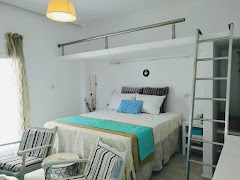There's no fear of exiting from the euro, especially when you don't have any. This is a translation of a conversation (as it appeared in protagon) overheard on a bus.
The bus was empty when two men entered it carrying plastic bags. Wearing clothes that looked like they had been through heavy use, their faces looking down towards the floor, unshaven to a degree of resignation - forget about a bus ticket... One was fifty and not much more, the other sixty and not quite. They sat in the seats right behind me and started chatting conspiratorially, in whispers, but my eavesdropping self turned on his antennas:
"- He sucked the faith out of us, till he gave us those bags ... A fine worm that monkey was after all at St N--...
- Yes, damn him... pauper's certificate, unemployed certificate, certificate after certificate and more bullshit ... But you know us, you karagiozi, I wanted to tell him... Nothing has changed.
- I sent the wife last time and he didn't give her anything ... He'll be requesting a passport soon.
- So much for the Benevolence Association - rice, pasta and toilet paper ...
- Meropi told me about an organisation in the centre ... I don't remember the name ... one of those quirky ones, ending in –ιs. They hand out oil, she tells me.
- Fuck it, if only, but ... If we wait for the the commissioner at St. N-- ... They hand out oil only at Christmas. Try to find out where this place is, you never know ...
- She says... You know, she doesn't say anything unless she's seen it for herself.
- Maybe it's one of those coupon bullshit jobs like the other time? What can I do with a 30% discount, when I don't have the 70% to start with?
- What can I say?… Let's see what St K-- will give ... from Monday …
- At least there, the Benevolence Association lasses are a little thick, the priest's a bit of a halva, and they don't ask for too many docs …
- Are you coming to the soup kitchen tomorrow?
- I don't know if I will be able to make it, I wanted to go first to the neighbourhood laiki (street market) when it closes … And anyway, by the time I walk from the kitchens to my house, carrying the plastic tub with the hot food, it's become ice-cream.
- I was thinking of giving you the extra packets of lentils, 3 half-kilo packs, and you can give me the kritharaki (orzo pasta rice).
- Yeah, let's do it … that's a good swap… It's a shame to waste it, especially since the kritharaki tends to get wormy if it its kept a long time … I've got five, no wait, maybe six packets, I can't remember. Anyway, how much more boiled pulp can we take?
- Lentils with no oil, on the other hand …
- You can make lentil salad, with a bit of lemon…
- Ah, gourmet dining… If you're around until four, I'll be there and we can do the swap..."
My stop was coming up, so I got off my seat, stealing a glance at the two men as I left the bus. "No fear of the country exiting from the euro" reads a newspaper headline hanging on the kiosk near my stop.
Have you seen worms in pasta and rice packets? They float to the top when you boil them, so they can easily be skimmed off the top of the pot. (As for flour, a sieve normally does the trick - before you intend to use it, of course.)
©All Rights Reserved/Organically cooked. No part of this blog may be reproduced and/or copied by any means without prior consent from Maria Verivaki.


























